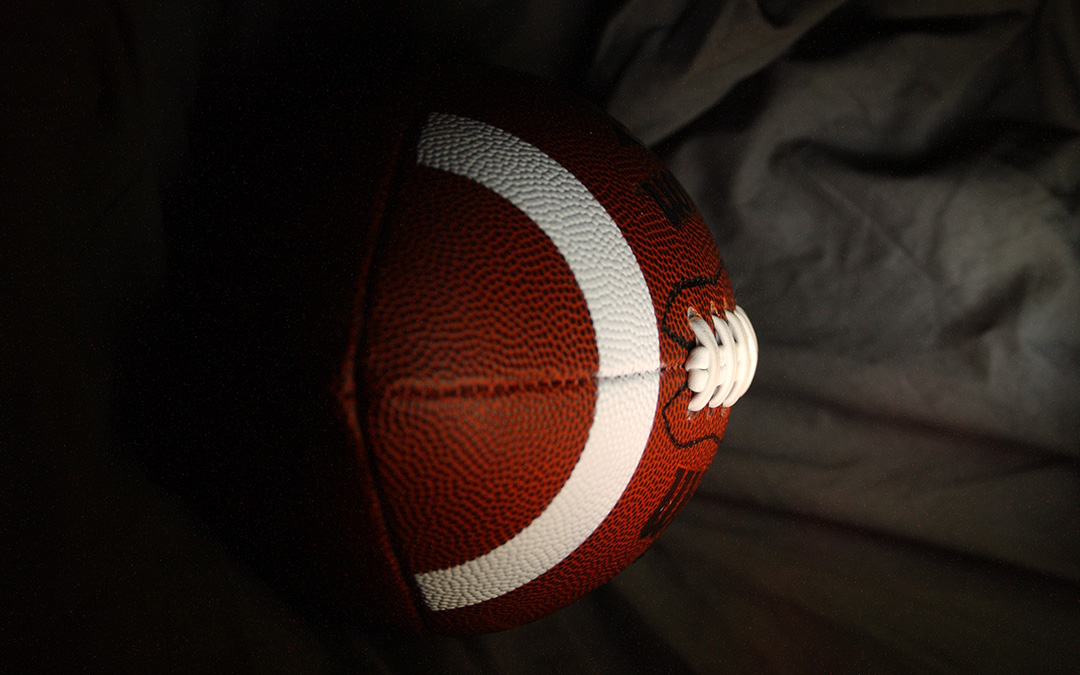Corporate Stadium Sponsors’ Stock Fluctuates With an NFL Team’s Success, Failure
Your favorite NFL team has “skin in the game,’’ but perhaps more surprising is that the large corporations that sponsor the stadiums do too.
Those are the findings of UConn Professor of Finance Assaf Eisdorfer and alumna Elizabeth Kohl, ’15 Ph.D., now a professor at the University of Cincinnati. The two football enthusiasts will have their research published in a future issue of the journal Critical Finance Review.
Their research shows that immediately following “high interest” National Football League home games, the stadium-sponsor companies also celebrate a stock-market victory or suffer a financial loss, depending on the outcome of the home team.
“We had a hunch that we would find something interesting, that’s why we started this project,” Eisdorfer said. “We thought the stock value would be sensitive to what’s going on in the field, but we were surprised at the magnitude of the effect. We found out that for an important game, if the team loses, the stadium sponsor suffers too.”
Eisdorfer and Kohl analyzed data from 3,400 games, including pre-season, regular season and post-season play, between 1997 and 2013. They looked at 21 NFL teams and 26 sponsoring companies.
They discovered that on the next stock-market trading day following a home-team win in a televised Monday night game, the team’s stadium sponsor earned an abnormal stock return that averaged .51 percent higher than if the team lost.
The results were even more profound for post-season games, after which the losing teams’ sponsors earned a stock return that averaged .82 percent lower than that of the winning teams’ sponsors.
Furthermore, after games with unexpected outcomes, the home-team sponsor earned a stock return that varied by .81 percent, depending on whether the home team won or lost.
Eisdorfer attributes the results, at least in part, to something called “sentimental investing.” Because an NFL viewer repeatedly sees and hears the sponsor’s name during the game and commercial breaks, he or she associates the company with the stadium and ultimately the team. A fan who is disappointed by the team’s loss can also associate that with the sponsor. What happens on the field influences the financial market value of the company, as demonstrated by the significant reduction in abnormal returns after away games, he noted.
From a trading standpoint, investors can use that information to buy stocks of winning teams’ sponsors and sell stocks of losing teams’ sponsors, he said. “That strategy results in an average gain of 1.5 percent per week during the NFL season due to the abnormal returns associated with the stadium sponsorship,” Eisdorfer said.
Football, which ranks as the nation’s favorite sport and biggest athletic ratings draw, offers fewer games than sports like baseball and basketball, giving high importance to every single game. Monday Night Football attracts tens of millions viewers on a regular basis.
Since their findings became public Eisdorfer and Kohl have received considerable publicity, both from sports broadcasts and financial publications, including CNBC, Fox Sports, and Yahoo! Finance.
“I greatly appreciate the conversations with a wide range of academics as well as business and sport industry leaders that have resulted from the mentions of our study in the popular press,” Kohl said.
Companies like FedEx, Bank of America, Ford Motor Co., SunLife Financial and Procter & Gamble spend millions on the naming rights of NFL stadiums. Eisdorfer said he wonders now if sponsors will consider the “stadium sponsorship effect” when they are entering new contracts.
“Perhaps some will be looking more carefully after Monday night and playoff games to see the relationship between stock price and the team victory effect,” he added.
